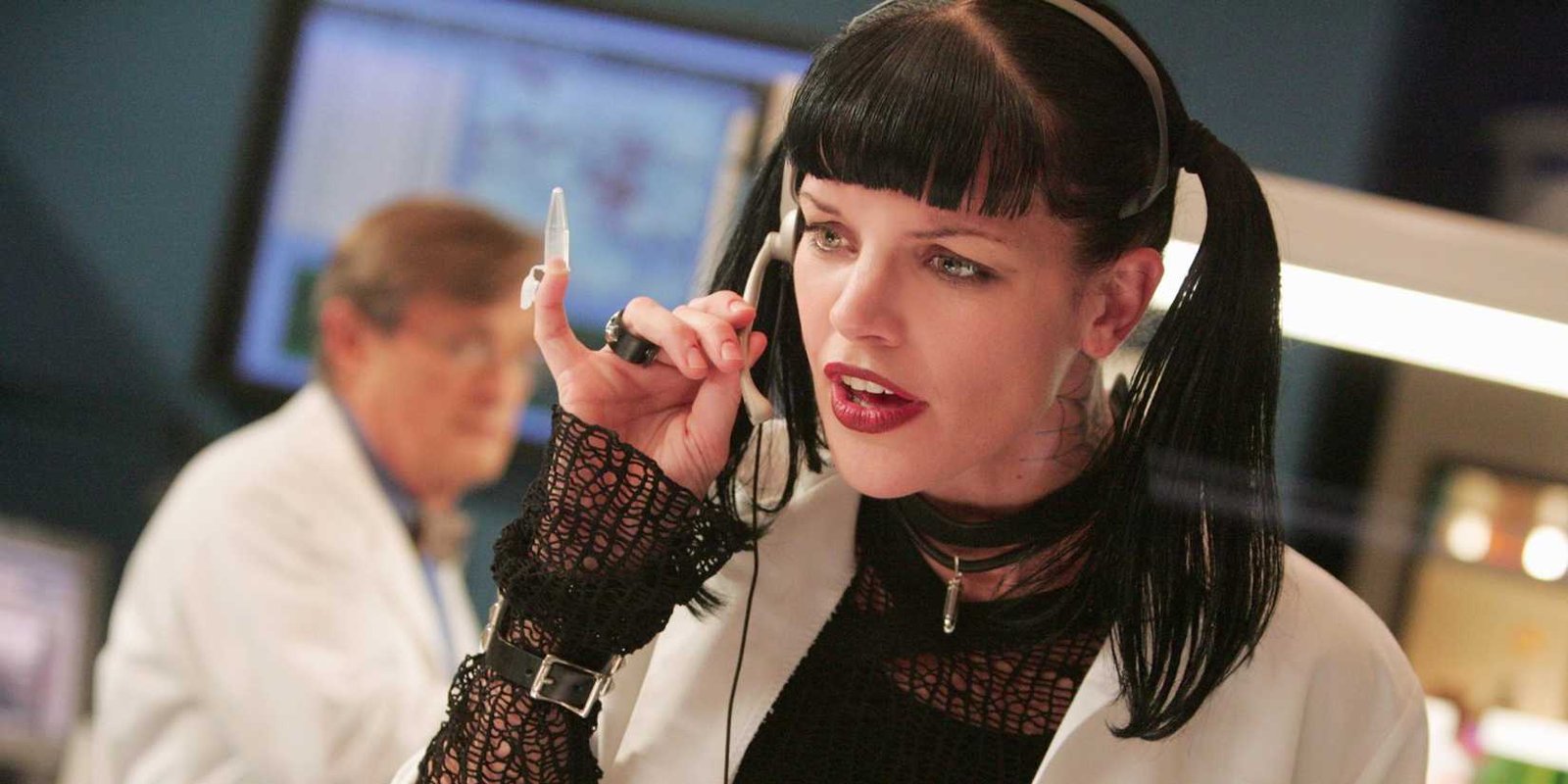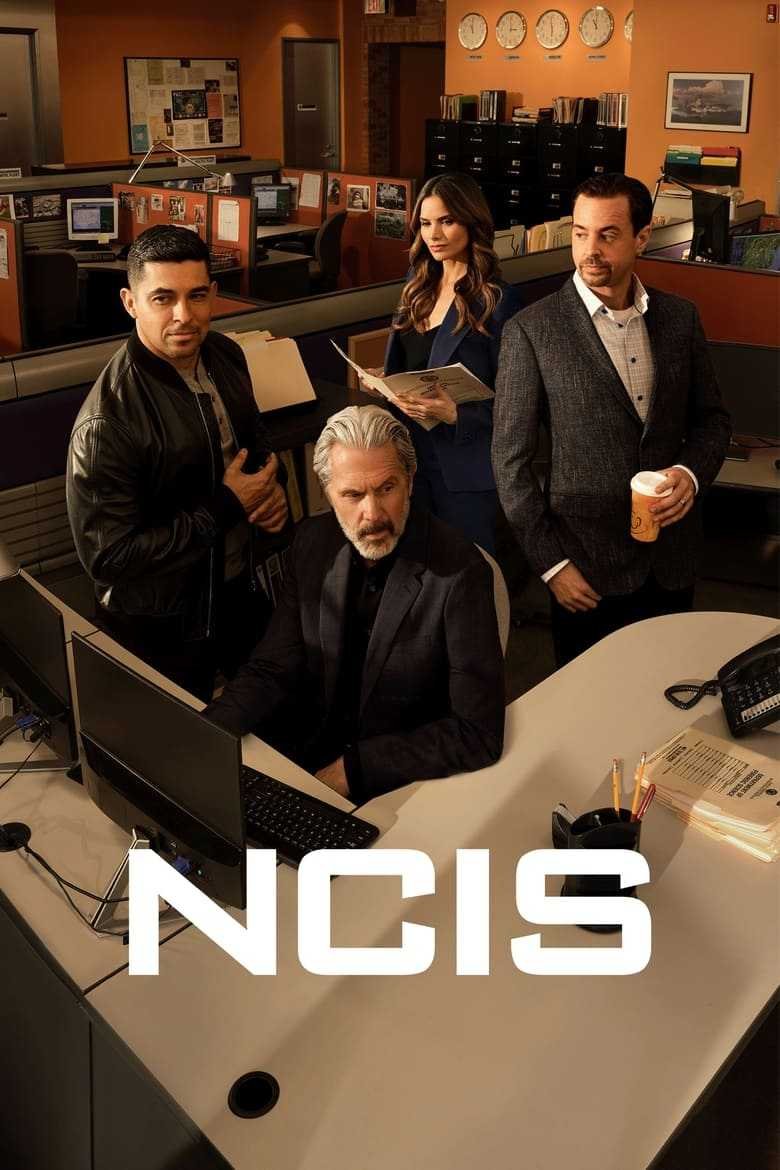Forensic Expert Reveals Surprising Inaccuracy In CBS Series

A forensics skilled explains what baffles him about NCIS. Following its CBS debut in 2003, NCIS temporarily turned into a staple of procedural community tv displays, particularly when it got here to felony investigation sequence.
NCIS season 23 is scheduled to premiere on October 14, and a large number of spinoffs proceed to air as smartly, together with NCIS: Origins returning for season 2 on CBS and NCIS: Tony & Ziva that specialize in the fan-favorite characters with their very own display on Paramount+.
In an interview with Rachel Foertsch for ScreenRant, forensics skilled and New York Police Division Detective Matt Steiner clarifies the function that forensics performs in a felony investigation. He explains the basic distinction between the detective and forensics facets of an investigation this is lost sight of in displays like NCIS.
Steiner additionally emphasizes that circumstances are hardly ever concluded as simply as they’re in NCIS, and maximum felony investigators don’t observe a case during as they do within the long-running sequence. Take a look at Steiner’s feedback beneath:
Matt Steiner: So you have got two facets of the investigation. You could have the detectives that deal extra they usually care extra concerning the purpose. They’re interviewing folks, they’re interrogating folks, they’re coping with extra of the testimonial proof, what persons are pronouncing. After which the forensic facet is dealing strictly with the proof, we simply care concerning the proof. After which, for a excellent investigation, you evaluate the 2. It’s like, “Proof tells me this, my suspect tells me this. Does it trust it or doesn’t? Is my proof telling me that this particular person is mendacity?” And if this is the case, then you have got a robust idea after which that’s what you need to deliver to court docket. Nevertheless it’s the similar factor, that proof might be like, “All proper, yeah, it’s conceivable what this particular person is pronouncing, and we will be able to’t disprove ’em.” That’s why they are saying “the proof doesn’t lie.” It’s as it doesn’t, its interpretation might be improper, however the proof itself isn’t going to lie.
ScreenRant: Smartly, clearly in displays, too, it opens with now we have a case, we wish to resolve it, and it closes with case solved. How ceaselessly do you if truth be told discover a conclusion to a case that you just’re operating on? I will’t consider that it’s that simple.
Matt Steiner: No, it isn’t that simple. And conclusions are at all times on the finish of trials, and no longer the whole thing is going to trial, however simply because somebody will get arrested for one thing doesn’t imply that they’re in charge of it. From time to time, the proof that we gather can exonerate someone, as smartly. So, there’s that a part of it. And the opposite section is for against the law scene investigator, you at all times get what they name the cliff notes model of the case. You’re getting a starting a part of the tale. You’re no longer doing any of the interviews, you’re no longer speaking to the circle of relatives, you’re no longer speaking to sufferers or the rest like that. You’re simply doing all of your activity on the crime scene. And then you definitely transfer directly to the following one. Subsequent day you move to another crime scene, and it’s no longer most often till years later when it is going to trial, you to find out what took place with it.
And from time to time that preliminary tale may be very other. On the finish, they will have a suspect to start with, they might be telling you on the crime scene, “Oh, we predict it’s the husband,” after which on the finish, it wasn’t the husband, it was once a boyfriend that we didn’t find out about, or one thing like that. So, you don’t observe the entire case during. So until, perhaps, if you happen to paintings in a small jurisdiction, the place you’re repeatedly embedded with different investigators, you might know what’s happening, however maximum puts, and unquestionably busy puts, you’re simply going from one crime scene to the following crime scene to the following crime scene.
ScreenRant: Oh, see, ok. Since the display virtually at all times ends with somebody confessing after which them being taken away. After which it’s like, ok, we suppose that they’re in prison, and that’s it. Case closed.
Matt Steiner: That may occur from time to time. I’d say numerous occasions, no less than in New York Town, we by no means knew the consequences till in a while, till we’re being referred to as to trial. If it’s an energetic scene, and they have got a suspect immediately, after which they make an arrest, and then you definitely do a next crime scene run to an rental the place they to find extra proof, then perhaps you more or less know extra concerning the tales. Now, there was once a taking pictures scene and now within the suspect’s rental, we discovered the gun, after which they fit the gun. And that, on your thoughts, you’re like, “Case closed.” However nonetheless, you don’t know the conclusions of the rest till it’s been adjudicated.
What This Way For NCIS
The longevity and enduring approval for the entire NCIS displays speaks to the franchise’s immense reputation. Then again, that reputation isn’t at all times synonymous with real-life accuracy, particularly with regards to how forensics and the detectives’ function of their felony circumstances are depicted.
Forensics can’t lie in spite of the entire occasions its effects are introduced into query all the way through NCIS. The detectives even have way more restricted involvement with maximum circumstances, with Steiner clarifying that they ceaselessly simplest see the start of a case and aren’t a part of it after completing their paintings at against the law scene and shifting onto the following activity.
Those inaccuracies would possibly come as a wonder to many audience, particularly those that have watched a large number of seasons of NCIS, however such liberties are taken for more potent storytelling. It’s extra narratively compelling for forensic effects to be introduced into query, and for detectives to turn out to be deeply invested in a case and notice it via to the top.
When somebody is a professional of their box the best way Steiner is, the inaccuracies in felony investigation displays are understandably baffling. Maximum audience are unfazed through such inaccuracies, despite the fact that, and they’re arguably extra apt to be distracted through extra realism in those circumstances.
It might be in particular distracting and dissatisfying to look NCIS crew contributors repeatedly shifting to other circumstances and not seeing them via to their conclusion. The method NCIS has taken obviously works taking into account the longer term of the unique display and the ever-increasing checklist of spinoffs.
NCIS
- Free up Date
-
September 23, 2003
- Showrunner
-
Donald P. Bellisario
- Administrators
-
Dennis Smith, Terrence O’Hara, Tony Wharmby, James Whitmore Jr., Thomas J. Wright, Michael Zinberg, Arvin Brown, Rocky Carroll, Diana Valentine, Leslie Libman, Tawnia McKiernan, Colin Bucksey, William Webb, Bethany Rooney, Alrick Riley, Jeff Woolnough, Alan J. Levi, Lionel Coleman, Martha Mitchell, Peter Ellis, Michael Weatherly, Edward Ornelas, Stephen Cragg, Tom Wright
- Writers
-
George Schenck, Frank Cardea, Jesse Stern, John C. Kelley, Jennifer Corbett, Christopher Silber, Reed Steiner, Nicole Mirante-Matthews, Jack Bernstein, Scott J. Jarrett, Matthew R. Jarrett, Kimberly-Rose Wolter, Don McGill, Gil Grant, Frank Army, Nell Scovell, Steven Kriozere, Brian Dietzen, Kate Torgovnick Might, Jeff Vlaming, Sydney Mitchel, Katie White, Richard C. Arthur, Laurence Walsh
-

Sean Murray
Timothy McGee
-

David McCallum
Dr. Donald ‘Ducky’ Mallard








